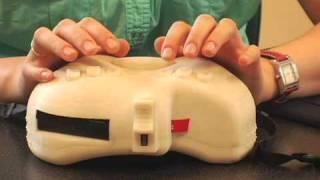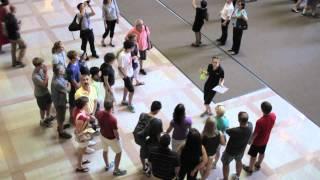Time Travel, Teleportation & Science
Time travel is the concept of moving between different points in time in a manner analogous to moving between different points in space, generally using a theoretical invention, namely a time machine. It has a commonly recognized place in philosophy and fiction, but has a very limited application in real world physics, such as in quantum mechanics or wormholes.
Although the 1895 novel The Time Machine by H. G. Wells was instrumental in moving the concept of time travel to the forefront of the public imagination, The Clock That Went Backward by Edward Page Mitchell was published in 1881 and involves a clock that allowed three men to travel backwards in time.[1][2] Non-technological forms of time travel had appeared in a number of earlier stories such as Charles Dickens' A Christmas Carol. Historically, the concept dates back to the early mythologies of Hinduism (such as the Mahabharata), Buddhism, and Islam through ancient folk tales. More recently, with advancing technology and a greater scientific understanding of the universe, the plausibility of time travel has been explored in greater detail by science fiction writers, philosophers, and physicists.
Teleportation, or Teletransportation, is the theoretical transfer of matter or energy from one point to another without traversing the physical space between them. It has a commonly recognized place in science fiction literature, film, and television, but as yet has a very limited application in real world physics, such as quantum teleportation or the study of wormholes.
Science (from Latin scientia, meaning "knowledge") is a systematic enterprise that builds and organizes knowledge in the form of testable explanations and predictions about the universe. In an older and closely related meaning, "science" also refers to a body of knowledge itself, of the type that can be rationally explained and reliably applied. A practitioner of science is known as a scientist.
In modern usage, "science" most often refers to a way of pursuing knowledge, not only the knowledge itself. It is also often restricted to those branches of study that seek to explain the phenomena of the material universe.
Source : Wikipedia
-
59:16
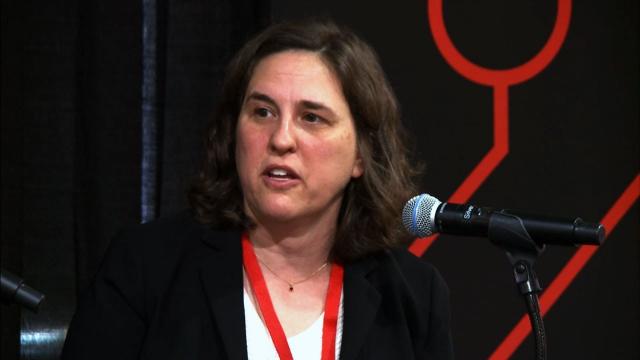
Teaching Computing in Science and Engineering
Added 464 Views / 0 LikesScience and engineering have been heavy users of computing power for a long time. More recently, computational thinking is having a bigger impact in foundational techniques and thinking. A panel of both faculty from MIT and elsewhere, along with professio
-
06:12
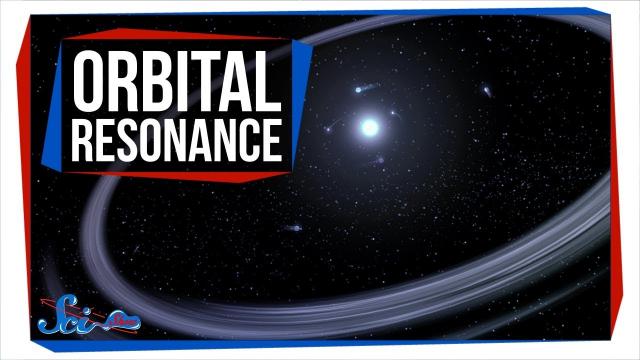
The Most Stable Neighborhoods in the Universe
Added 379 Views / 0 LikesGo to https://NordVPN.com/SPACE to get 75% off a 3 year plan and use code SPACE to get an additional month for free.No planet’s trip around a star is exactly like the one before it, because solar systems aren't as static as they first appear. Even small n
-
10:21
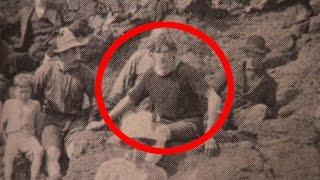
10 Most Compelling Pieces Of Evidence That May Prove Time Travel Exists
Added 1,133 Views / 0 LikesWhat we talk about when we talk about time travel: going back to kill Hitler, Back To The Future, treading on butterflies causing irreparable damage to history, Doctor Who, whether or not it's ethical to use it to cheat on the lottery or sports gambling o
-
05:58

What If Dark Energy Doesn’t Exist?
Added 331 Views / 0 LikesThis episode is brought to you by the Music for Scientists album! Stream the album on major music services here: https://streamlink.to/music-for-scientists. Check out “The Idea” music video here: https://www.youtube.com/watch?v=tUyT94aGmbc. Dark Energy is
-
05:14

Photonic Propulsion: Mars in 3 Days?
Added 677 Views / 0 LikesPhotonic Propulsion: Mars in 3 Days?
-
00:51
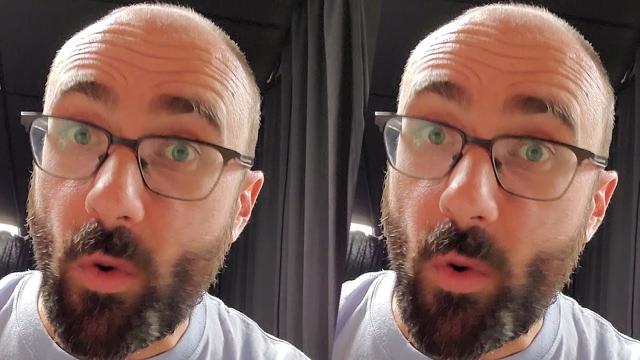
THANK YOU! #shorts
Added 259 Views / 0 Likesuse code BEST before Nov 8: https://www.curiositybox.comCheck out the Alzheimer's Association: https://www.alz.org/#shorts #jortssong: SHONA by Jake Chudnow
-
03:28
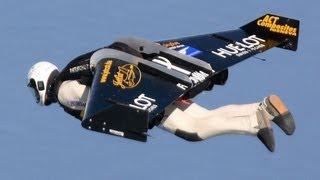
Fly Like Superman: Science Friction Ep 3
Added 937 Views / 0 LikesYou've waited long enough for your jetpack. On this episode of Science Friction I break down the different ways you can achieve personal flight just like Superman. Each episode of Science Friction tells you how to achieve a different super power using the
-
06:11

A Baby Planet May Have Once Smashed Into Jupiter | SciShow News
Added 462 Views / 0 LikesShortly after Jupiter formed, it might have been struck by an object that may have otherwise become its own planet! And researchers have a new estimate of how many Earth-like planets might exist.Check out Journey to the Microcosmos: https://youtu.be/io731
-
06:35
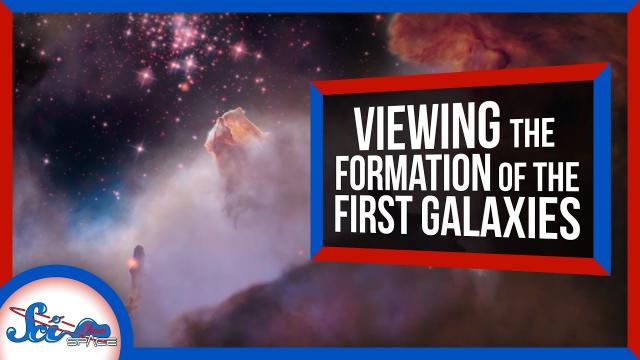
Using Galaxy Clusters to Look Into the Past
Added 383 Views / 0 LikesGravitational lensing has given us a look at a galaxy in the very, very distant cosmic past using x-ray light, and NASA finally got its ICON mission off the ground!History Pop: http://youtube.com/historypopStories Retold: http://youtube.com/storiesretoldH
-
02:45
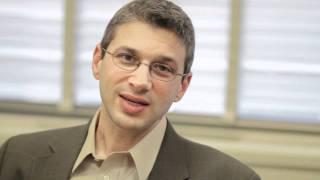
MIT's Jeffrey Grossman - Solving energy problems, one molecule at a time
Added 692 Views / 0 Likes -
05:27

New Discoveries from Our Second Interstellar Visitor | SciShow News
Added 465 Views / 0 LikesThis year, scientists have had a chance to study something pretty mind-boggling: a comet that came from outside of our solar system.Host: Hank GreenSciShow has a spinoff podcast! It's called SciShow Tangents. Check it out at http://www.scishowtangents.org
-
06:40
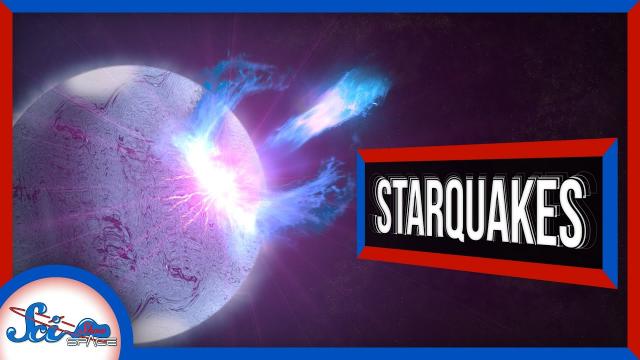
Starquakes Could Be Behind 3 Cosmic Mysteries
Added 727 Views / 0 LikesWe’ve detected seismic activity all around the solar system, from earthquakes to moonquakes, marsquakes to venusquakes. But the most dramatic quakes we know of actually happen on stars!Hosted by: Hank GreenSciShow has a spinoff podcast! It's called SciSho
-
03:37

I can save the world from my living room
Added 490 Views / 0 LikesMIT engineering students Afeefah Khazi-Syed and Jeba Sania became close friends as active members of the MIT community. Now, even from a social distance, their friendship and resolve to help make the world a better place continues to grow. Watch more vide
-
2:28:23
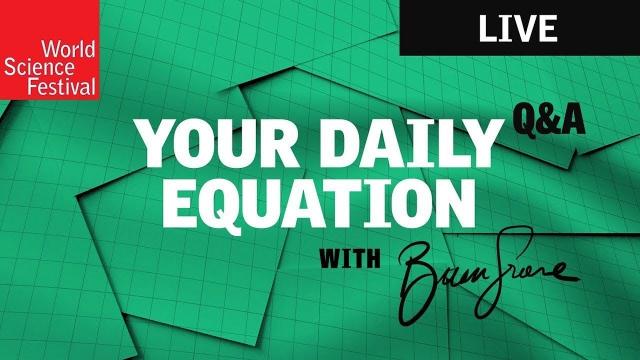
Your Daily Equation | Live Q&A with Brian Greene
Added 494 Views / 0 LikesLive Q&A with Brian Greene - #YourDailyEquation: Join a live session with Brian Greene, 3 PM EDT. Relativity, quantum, the universe -- ask him anything that's on your mind. We’d love to see & hear your questions for future Q&As with Brian Greene. Send us
-
44:28
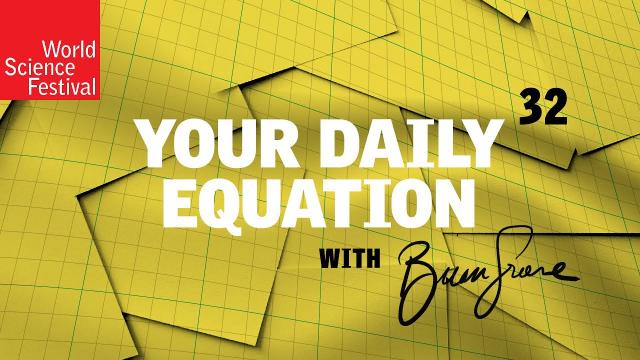
Your Daily Equation #32: Entropy and the Arrow of Time
Added 407 Views / 0 LikesEpisode 32 #YourDailyEquation: Einstein referred to entropy and the second law of thermodynamics as the only insights into the workings of the world that would never be overthrown. Join Brian Greene as he explores how these concepts illuminate the differe

